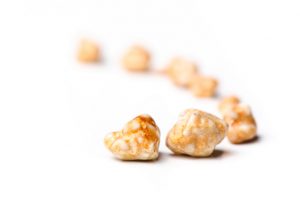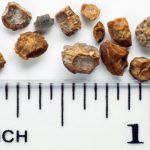 Gallstones and kidney stones share a common risk connection as well as symptoms. A gallstone is a hard lump that forms in the bile duct or gallbladder. When bile contains too much cholesterol or bilirubin, then gallstones are formed. Kidney stones, on the other hand, form when there is insufficient fluid in the body, so mineral deposits form together to make stones.
Gallstones and kidney stones share a common risk connection as well as symptoms. A gallstone is a hard lump that forms in the bile duct or gallbladder. When bile contains too much cholesterol or bilirubin, then gallstones are formed. Kidney stones, on the other hand, form when there is insufficient fluid in the body, so mineral deposits form together to make stones.
Difference between gallstones and kidney stones
Gallstones affect approximately 20 percent of women over 40 and eight percent of men. Kidney stones send roughly 1,000 American adults each year to the hospital. Kidney stones are referred to as one of the most painful experiences a person can undergo, but gallstones can go symptomless for many years. When symptoms do occur in gallstones, pain can also be excruciating and sudden but usually doesn’t last for very long.
Advertisement
Gallstones can contribute to infection, which needs to be treated with antibiotics. For kidney stones to lead to infection there needs to be a blockage of urination.
Gallstones vs. kidney stones comparison chart
| Gallstones | Kidney stones | |
| What is it? | Hard lumps that form in the gallbladder | Hard crystalline mineral matter formed within the kidney or urinary tract |
| Stone type | Cholesterol, pigment | Nephrolithiasis |
| Stone composition | Cholesterol, calcium bilirubinate | Calcium stones, struvite stones, uric acid stones, cystine stones |
| Symptoms | Pain below ribs, right shoulder, nausea, sweating, restlessness and fever | Pain below ribs, back, right shoulder, nausea, sweating, restlessness, fever, colicky pain (comes in waves) |
| Causes | Age, ethnicity, obesity, crash diet, oral contraceptives, high-fat diet, statin drugs | Mineral and acid salts |
| Gender dominance | Female | Male |
| Diagnosis | CT scan, cholangiography, cholescintigraphy, blood cholesterol test, jaundice | CT scan, ultrasound, intravenous pyelogram |
| Treatment | Cholecystectomy, ursodeoxycholic acid, ERCP, lithotripsy | Pain control medications, lithotripsy, inducing polyurea, surgery |
| Prevention | Vegetarian diet, low-fat diet | Drink more water, avoid food with high oxalate content |
Previous study shows link between gallstone and kidney stone risk
 A study outlined that those who develop kidney stones have a higher risk of developing gallstones and vice versa. Obesity, diabetes and an unhealthy diet have been linked to the development of stones, but when researchers took those factors into consideration the association still remained.
A study outlined that those who develop kidney stones have a higher risk of developing gallstones and vice versa. Obesity, diabetes and an unhealthy diet have been linked to the development of stones, but when researchers took those factors into consideration the association still remained.
Even though an association has been found, researchers are still puzzled about what links the two conditions because they have very difference causes – gallstones require cholesterol and kidney stones require minerals.
The researchers analyzed three different long-term studies of nurses and doctors who completed health and lifestyle questionnaires. More than 240,000 participants were followed for 14 to 24 years. Approximately 5,100 cases of kidney stones developed along with 18,500 cases of gallstones.
The researchers found that in those with a history of gallstones there was a 26 to 36 percent higher likelihood of developing kidney stones. A prior history of kidney stones increased the risk of developing gallstones by 17 to 51 percent.
Advertisement
Although the association between the two conditions is still unclear, it’s important that individuals use preventative methods to reduce the risk of both.
As both gallstones and kidney stones have similar prevention methods, staying hydrated, eating well – reducing cholesterol – and exercising are all integral ways to lower your risk of both.
Also Read : Gallstones Home Remedies and Diet Plan
